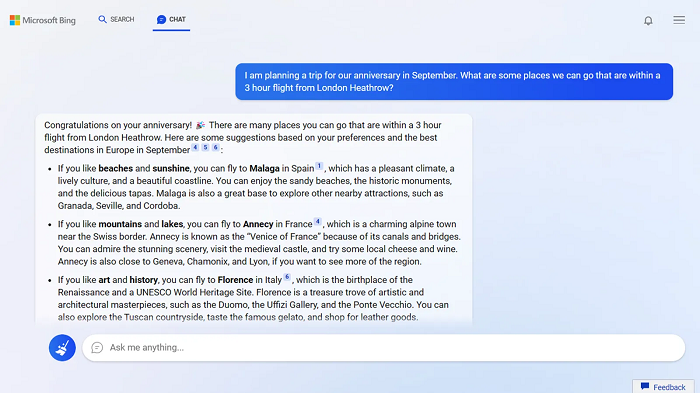With generative AI being integrated into search engines, one of the key questions for marketers is what that will mean for SEO, and how search ads may, or may not, work in future.
Microsoft, which is in early testing with its new Bing chatbot experience, has provided some early pointers on this, explaining to ad agencies that, soon, it will allow paid links within AI-generated responses to search results, along with contextual pop-ups around relevant queries.

So, for example, in a query like this, Microsoft would look to utilize the available screen real estate to display relevant promotions or products, while ads could also be directly integrated into the response – e.g. ‘the Malaga Hotel has a special offer available now on rooms’.
Microsoft says that Bing chatbot ads will also be bigger and more prominent than regular search ads, which could provide more opportunity to reach users in the discovery phase.
Though it will also come with a level of risk. Already, Microsoft’s new chatbot experience has led to some interesting exchanges with the AI, where the system has gone off the rails and tried to break-up marriages, lie to users, and plan for world domination.
These types of exchanges have seen some call for more stringent controls around AI usage, particularly given the system’s propensity to distribute false or misleading information.
That could have big implications for advertising and brand safety, especially if brands have concerns about their ads appearing alongside these types of questionable responses.
But still, the waitlist for the new Bing chatbot experience is well into the millions, and it could represent a significant new opportunity for the tech giant.
It’s possible that we shouldn’t be looking to jump into AI so fast, given such concerns, but if we’re doing it anyway, it seems that Microsoft, at least, is going to make a profit.
Will that factor into your advertising approach? The evolution of Bing chat throughout 2023 will likely provide more indicators on this.



